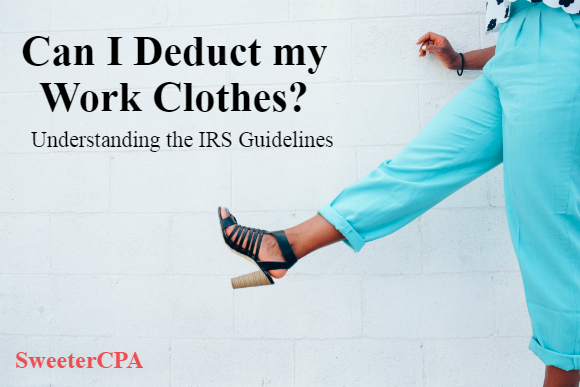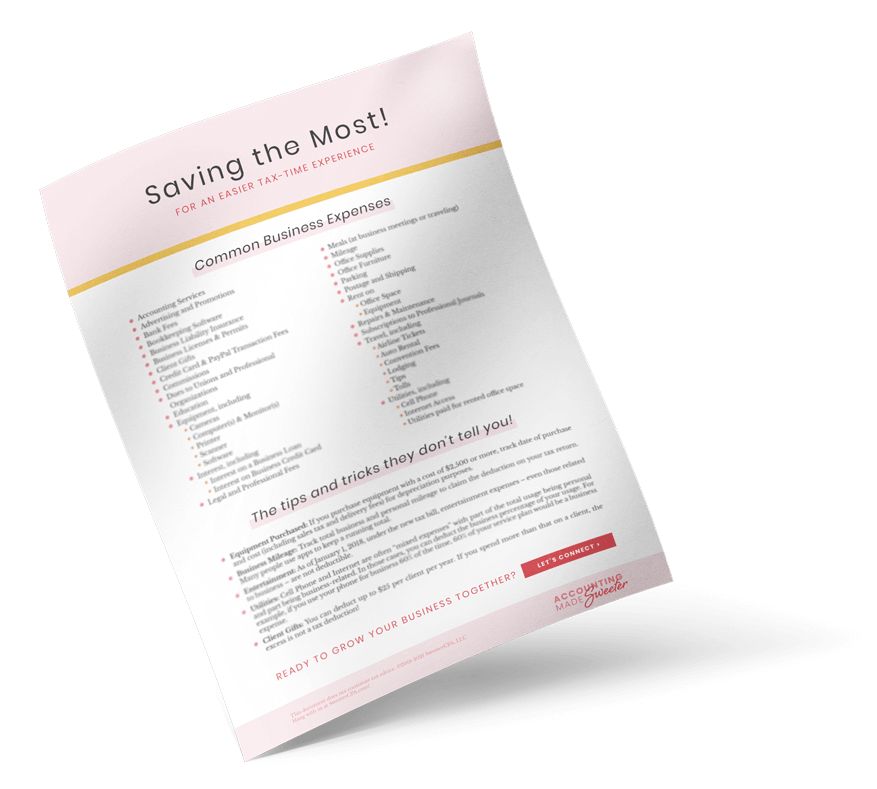To get right to it, the answer is most likely “no.”
The IRS has very strict rules for what type of clothing can be deducted. While guidelines can be found in IRS Publication 529, we also look to tax court cases for further information on what the IRS deems deductible clothing expenses.
However, there is some good news – a narrow “yes” – you can deduct the cost of the following items:
- Protective Clothing. If you are required to wear a hard hat, protective eyewear, steel-toed boots, or gloves to do your job, they are deductible expenses.
- Mandatory Uniforms. If your employer requires you to purchase and wear a uniform, you may deduct the related cost on your tax return if the uniform is distinctive and not suitable for everyday wear. (More on what is “suitable for everyday wear” below.)
If your protective clothing or uniforms need cleaning or maintenance, those costs would also be deductible. This means you can include related dry cleaning or repair costs on your tax return.
The IRS considers clothing purchases that do not fall into these categories – purchases that are not protective clothing or mandatory uniforms – to be personal expenses. We can’t deduct these personal expenses on a tax return.
But I need to look professional!
Many people need to maintain a certain image related to their profession. However, that alone does not mean that the clothing is deductible. The general rule is that when business clothes are suitable for everyday wear, a deduction is not allowed.
Some famous examples:
Cecil Mella was a tennis professional at two clubs in the Chicago area. Both clubs required “proper tennis attire” for those on the courts. As the clubs did not require specific brands, Mr Mella purchased his preferred tennis clothes and shoes and deducted the expense on his tax return. The IRS challenged the deduction and in 1986, the Tax Court agreed. Tennis shoes and athletic clothing worn at work could also be worn for personal reasons while off the clock.
As a news anchor, Anietra Hamper was required to adhere to her station’s “Women’s Wardrobe Guidelines” which specified that “standard business wear” be worn on air. Clothing was to be neat, professional, and conservative. Ms. Hamper incurred considerable expense to maintain these requirements and deducted the related costs as unreimbursed employee expenses on her tax return. The IRS challenged this deduction claiming that maintaining a professional wardrobe is a personal expense. In 2011, the Tax Court sided with the IRS.
What is “suitable for everyday wear”?
A big hurdle to deducting clothing costs is proving that the clothing is not suitable for general wear. Here, it’s important to remember that the IRS doesn’t care if you actually DO wear the clothing outside of work, but rather, if you COULD.
Most often, you could.
In the case of Mr Mella, the court noted that “it is relatively commonplace for Americans in all walks of life to wear warm-up clothes, shirts, and shoes of the type purchased by [Mr Mella] while engaged in a wide variety of casual or athletic activities.” In other words, just because he didn’t wear his tennis attire outside of the clubs did not mean he couldn’t.
Similarly, Ms. Hamper maintained that she did not wear her business wardrobe when she wasn’t at work. The court noted that most professionals don’t wear business clothes when not at work and that alone does not make those clothes unsuitable for everyday wear.
The IRS sets a high bar to determine whether you could wear your business wardrobe outside of work! The majority of us could, even if we’d prefer not to.
What about hair and make-up expenses?
Again here the IRS’s concern is whether the expense is business or personal. Most grooming costs are considered personal. Even in cases where people have been told to maintain a specific appearance – such as Ms. Hamper – the IRS has denied a deduction. Hair, make-up, teeth-whitening, and manicure expenses were deemed “inherently personal.”
The exception in this case is for hair and make-up specifically for a theatrical production. Similarly, wigs or other components of a costume would be a business expense for the actor who purchases them or the theater company who supplies them.
What if I’m Self-Employed?
It’s tricky for employees to meet the thresholds to deduct work-related clothing and it is even trickier for people who are self-employed. For example, when you work for yourself, there is no one to require you to wear a uniform!
Self-employed people would however be able to deduct the cost of protective clothing and related maintenance or components of a costume as detailed above.
Bottom line: Most people will not be able to deduct the costs of their business wardrobe on their tax return. If you think you are an exception, talk to a tax adviser before preparing your return.




